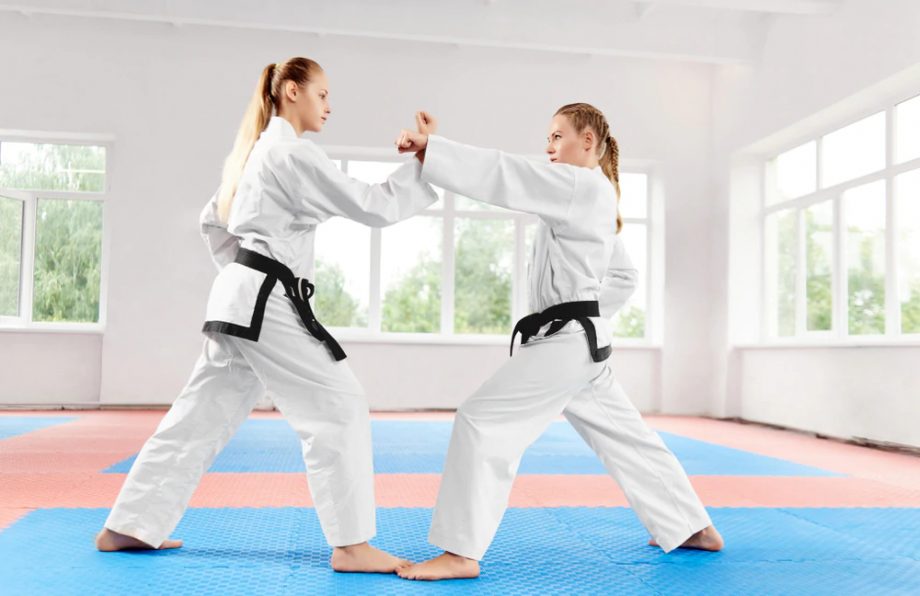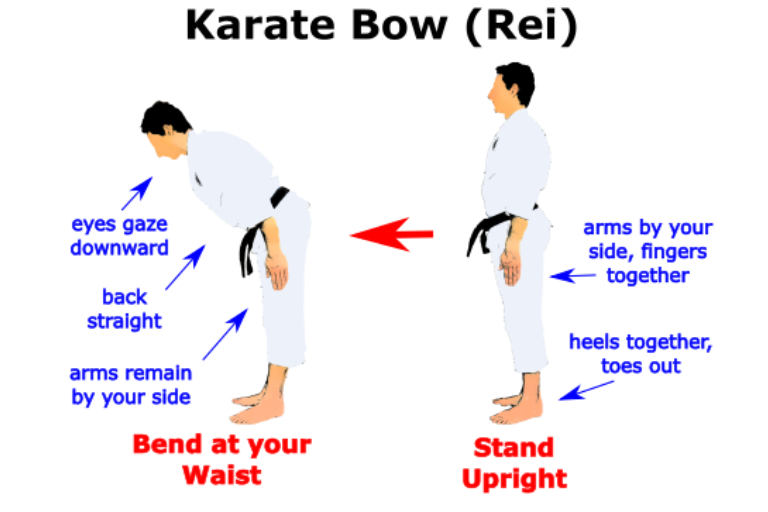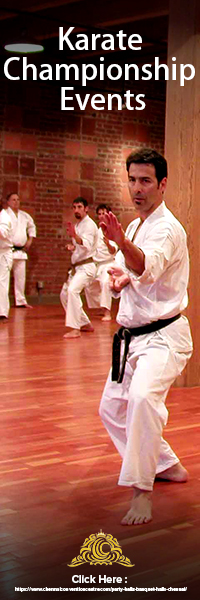Karate Rules
Karate is an ancient and popular martial art that focuses not only on self-defence techniques but also on mental strength. It can be practised by people of all ages to provide both physical and emotional benefits. There’s no end date for when one should stop practising karate– it may help keep you mentally sharp as well as physically fit! Karate practitioners are expected to wear a traditional gi over their clothes while learning the sport; belts represent how advanced they have become in this type of combat training.
The following are the top ten karate principles:
1. Treat Others With Respect:
There are ten top karate values, the first of which is to treat others with respect. As both mental and physical strength are part of karate training, courtesy is a cornerstone of this sport. Respect begins and ends in martial arts because people need to understand what they’re learning before starting on their journey through different striking techniques or other forms that can be seen as more complex than those at the beginning stages; children who start around age five will learn about self-control and patience before hitting things too hard so as not hurt themselves or anyone else (especially when one looks into how many accidents happen due to impatience). Patience should also come up often while respecting traditions like knowing where the term ‘ karate.’
2. Make Good Use Of What You’ve Learned:
You don’t just learn karate for the sake of learning. The knowledge and skills you acquire are only useful if put to good use, which can mean one of two things: firstly, many blows learned in karate has the potential to cause injury when performed incorrectly; so it is important not to perform them outside a self-defence context or without consent from your opponent (goes against core principles). Secondly, be cautious about how hard and where you strike with your moves, as this is necessary for safety reasons.
3. Karate Isn’t Just For The Dojo Anymore:
Karate isn’t just for the dojo anymore. Students should represent a positive image inside and out to better people both on and off the mat! Karate teaches respect, self-control and integrity outside of training as well – not only during sparring or belt tests but also in your day to day life.
4. In Karate, There Is No Such Thing As A First Attack:
Karate is a martial art that developed in Japan during the late 1800s and early 1900s. It’s focused on self-defence rather than offence, so Karate practitioners believe it wrong for someone to attack first. This guideline applies when there are no prerequisites or legitimate reasons for attacking an opponent who has not made any hostile movements towards them; this philosophy also helps keep people safe from harm by avoiding unnecessary violence altogether.
5. Strive For Character Perfection:
Every day I learn new things, one of them being that mental practices in karate are just as important as the physical ones. When training with my instructors, they always emphasise how developing mental power is equally important to perfecting moves and learning techniques!
6. Make The Best Effort You Can:
Karate instructors require all students to put out their utmost effort at all times. Karate training can be difficult and stressful, but anyone can master the art of karate with complete dedication!
7. Catastrophe Carelessness Is The Source Of This:
Catastrophe Carelessness is the source of this. It was never intended for such purposes by those who created it with care and wisdom. Karate’s core premise involves using your knowledge wisely, but many martial arts students have become negligent and are now causing problems in society that originally were unintended by its creators. Karatists must be careful when applying their techniques to avoid undesirable effects like injury or death.
8. Make Adjustments Based On Your Opponent’s Performance:
It is important to know your strengths and weaknesses to tailor the way you approach opponents. When practising karate, or sparring with each other for that matter, it’s up to us as individuals who have different skillsets and physical abilities than one another. It will dictate what level of strength we need at varying points–especially when facing a competitor with similar skill levels but more muscle mass on their frame, which may make them stronger overall. It can be tempting sometimes just try our best against all comers regardless of circumstance; however, this usually leads the only failure because no amount of training will allow an individual without significant natural resources (strength) to compete against someone whose strength surpasses theirs by leaps and bounds due to some genetic predisposition caused by
9. Keep A Beginner’s Mind:
Keeping a beginner’s heart means always being willing to learn new lessons, no matter how long you’ve been practising karate. No one knows everything about the sport: there’s always something new to learn or improve on!
10. Be Faithful:
If you want to succeed in life, take the time to learn all of this martial art’s principles and traditions. It’ll be worth it when an opponent faces your aggressive stance on the battlefield!







